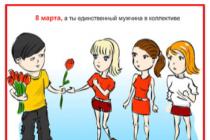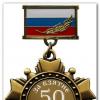Introduction
In the process of formation in Russian society new professional stratum: municipal employees - it becomes obvious that this process cannot be isolated from the development trends of the world community. The role and functions of employees in the management of local communities must comply with the requirements of the main global processes.
In domestic and foreign literature, there are several approaches to the definition of municipal government. According to the first point of view, municipal government is considered as the activity of municipalities of an administrative-executive nature and is an integral part of the system local government. According to the second point of view, municipal government is associated with such a concept as public administration at the local level. Based on this, municipal government is not included in the system of local self-government, but is opposed to it and is interpreted as management activity on the territory of the municipality, implemented by higher-level authorities through appointed administrative bodies.
Social problems of municipal government
Currently, Russian scientists adhere to the point of view according to which municipal government is a broader concept than local self-government, including:
Public administration at the local level, i.e. federal and regional government bodies that carry out a number of functions of state policy in the field of finance, taxation, land management, employment of the population, etc.;
Local self-government as a form of democracy;
Municipal management as a system of actions to establish partnerships between local governments, the population and private capital in order to ensure the progressive socio-economic development of the municipality.
The 21st century has dramatically changed the view of the problems of municipal government and the quality of its human potential. The motivating forces were:
Technological challenge - lagging behind advanced countries, loss of intellectual potential, the answer to which is to improve the quality of education, develop professionalism, change the model of competence for senior officials, develop new curricula, form a more innovative and risk-averse organizational culture in the municipal service;
The demographic challenge is the loss of human resources, the shortage of personnel in the social sphere and the economy, the answer to which lies in ensuring equal access to the municipal service, the development in each ministry of a plan to ensure the representation of all social groups of the population;
Environmental challenge - the deterioration of the health of the nation, the growth of environmental costs, the answer to which can only be an environmental imperative - environmental education and training, the study and application of new health-saving technologies, achieving a balance between work and personal life;
Information challenge - information inequality, Russia's economic backwardness in the information sphere, promotion of information technology knowledge as a guarantee of a successful career and a better quality of life, the answer to which can be the promotion of new priorities in management informatization, attracting the attention of international and national scientific and training centers leading universities to the problems of municipal management;
Dynamic challenge - lagging behind the global dynamics of change, the crisis of the economy, science, education, culture, the answer to which is the development of advanced education as learning to live and act in a changing world, facilitating access to the highest positions of the municipal service for specialists from outside, the formation of a non-bureaucratic, innovative climate in municipal administration, improvement of interdepartmental cooperation, the need to maintain a unified system of state and municipal services to ensure close cooperation between the central government and the emerging administrations in the regions;
The ideological challenge is the growth of crisis phenomena in the development of society, the need for a new scientific worldview, the answer to which lies primarily in the fundamentalization of knowledge that develops a view of man as part of Nature, openness and attraction talented people, creative consciousness, the formation of strategic thinking among leaders to determine priorities and goals for the development of territories, taking into account specific characteristics and natural features;
Moral challenge - demoralization of society, loss of spiritual values, crime, corruption), the answer to which may be the priority of education (including moral) over training, the concentration of attention of municipal employees on improving the quality of their work, the need to make it more responsible for consumers of municipal services, performance management, a new system of remuneration and evaluation of the work of municipal employees.
Cognitive mapping method in assessing the socio-technological competence of municipal employees of the city of Lipetsk and the Lipetsk region
Modern scientific approaches to the construction of a comprehensive assessment today is not possible without the use of a cognitive approach to research, which makes it possible to link into a single whole the multitude of processes occurring in the economic, social and political spheres. A possible variant of the application of the cognitive approach in a particular study may be the assessment of the socio-technological competence of the municipal employees of the city of Lipetsk.
To formulate this concept, two already defined ones were considered - social and technological competence. In the course of the work, we believe that as a result of the education process, a person should form some holistic socio-professional quality, which implies a person’s deep awareness of the conditions, technologies, methods for solving family and group problems and the ability to competently put their knowledge into practice, easily interact with group (team). This quality can be defined by us as a holistic socio-technological competence of a person.
Data for the study were collected using questionnaires, the results were processed automatically using the SPSS statistical data processing program. The sample consisted of 100 people, 66% of whom were women with less than 5 years of work experience. Municipal employees of the Administration of the Lipetsk region and the city of Lipetsk were interviewed, holding such positions as specialist, head of department, deputy head of department, Chief Specialist, leading specialist and specialist of the first category.
As a result of a questionnaire survey, a set of the most important criteria (concepts) were identified that describe the socio-technological competence of municipal employees, such as: knowledge of means, methods, programs for performing actions, solving social and professional problems (1); readiness for non-standard, creative solutions (2); knowledge of activity management technology (3); knowledge of the algorithm and sequence of professional activities (4); knowledge of social design procedures (5); experience in the implementation of knowledge, skills (6); manufacturability of activities (7); ability to work in a team (8); perspective thinking (9); readiness for the manifestation of personal property in the activities, behavior of a person (10); constant striving to improve performance (11); responsibility for decisions made (12); organization (13); the ability to adequately assess the level of one's own activity (14); willingness to take risks (15); active in social activities (16); ability to effective self-organization, self-control (17); diplomacy, the ability to extinguish conflicts (18); motivation for research, scientific activity (19). The requirements of measurability did not allow the inclusion of “value-semantic attitude to competence” (concept No. 0) into the considered set of criteria, because at present there are no models that adequately assess this criterion. However, it was included in the lists of additional criteria.
After 20 variables (concepts) were identified, another survey was conducted to determine causality relationships for each pair of variables. As a result, it was found that there are no pairs of concepts that do not affect each other.
The analysis showed that there are no negative feedbacks in the sign graph, and there are four positive feedbacks.
This means that such criteria as “knowledge of technology for managing activities”, “experience in implementing knowledge, skills”, “systemic, perspective thinking”, “readiness for non-standard, creative solutions” and “value-semantic attitude to competence” form the outline of the system. A circuit in a system is such a combination of relationships that implies the presence of three or more factors that are in a causal relationship with each other.
Within the contour, a change in feature 3 causes a change in feature 2, which, in turn, affects feature 9, which will similarly change feature 6. It is important to assess the nature of the relationship between the contour criteria. As you can see, the relationship is positive, it is a relationship in which an increase in the values of one factor causes an increase in the values of another factor.
In our study, increasing knowledge of activity management technology leads to the readiness of municipal employees to make creative decisions, after which systemic perspective thinking is developed, which leads to an increase in the level of experience of a specialist, an increase in the implementation of his knowledge. All of the above factors in their totality form a value-semantic attitude to competence, which accordingly increases or decreases with an increase or decrease in the constituent factors.
MINISTRY OF EDUCATION AND SCIENCE OF THE RUSSIAN FEDERATION
FGBOU VPO "Ural State Economic University"
Distance Education Center
Test
by discipline: Introduction to the specialty
on this topic: _The relevance of state and municipal government in modern conditions _
Artist: student
Direction: State and municipal administration. ___
Profile: Regional and municipal government
Group: GMU-14 TV
FULL NAME: Oyun Milana Maadyr-oolovna
Yekaterinburg 2014
Introduction ………………………………………………………………….3
……..…..5
1.1 The concept of public administration……………………...……….5
1.2 The concept of municipal government………………………………..8
2. Functions and directions of state and municipal government………………………………………………………………………………………………………………………………………………………………………………………………………………………………………………………………………………………………………………………………………………………………………………………………………………………………………………………………………………………………………………………………………………………………………………………………………………………………………………………………………………………………………………………………………….
2.1 Development of the system of public administration functions in modern conditions……………………………………………………….…….12
2.2. The main directions of modern state and municipal management……………………………………………………………………………………………………………………………………………………………………………………………………………………………………………………………………………………………………………………………………………………………………………………………………………………………………………………………………………………………………………………………………………………………………………………………………………………………………………….
Conclusion………………………………………………………………19
List of used literature…………………………………20
Introduction
The effectiveness of the system of state and municipal government in modern conditions depends on the competent organization of the interaction of all its elements.
The state administration of the country is carried out with the help of the organization government agencies, apparatus of state institutions (military, judicial, police, administrative). Each institution ensures the implementation of the main and non-basic functions of the state (maintaining order, protecting the fatherland and protecting its borders, as well as financial, economic and religious education). In a public institution, there is a group of persons organized by the state, public servants, who perform public tasks.
The civil service was formed as a result of the reforms of Peter I. Scientists of the XIX century. defined public service as “a special public-law relation of an employee to the state, based on subordination and having as its content mandatory activities performed on behalf of the state and aimed at the implementation of a specific state task” (N. M. Korkunov) 2 . This definition is recognized as legitimate and at the end of the XX at the beginning of the XXI century.
Government agencies and bodies in all periods of their development can be divided into three main groups, corresponding to their place in the system of the state apparatus: higher (who are directly subordinate to the bearer of supreme power the Grand Duke, Tsar, Emperor) or are, as a rule, bodies of legislation, supreme administration, supervision and court (Boyar Duma, Senate, State Council, Committee and Council of Ministers, etc.); central Sectoral and multi-sectoral management bodies (institutions) (orders, collegiums, ministries) executing laws, as well as orders of supreme authorities and higher bodies (institutions); regional and local bodies of power and administration (provincial, district, city, etc.), territorial, in some cases "all-Russian", but connected by a "special" territorial division of individual national outskirts.
Relevance: It is ensured by the fact that the current stage of Russia's development is characterized by increased attention to the problem of the relevance of state and municipal government.
Target: - disclosure of the main aspects of state and municipal management.
An object: concept, state and municipal management.
Item: the relevance of the functions of state and municipal government in modern conditions.
Tasks:
- Give the concept of state and municipal government.
- Describe the main functions of public administration.
- To analyze the main directions of improvement of modern state and municipal management.
Sources: regulatory legal acts of the Russian Federation, popular science and special literature, a number of monographs and publications.
1. The concept of state and municipal government
1.1 The concept of public administration
Control the function of complex organized systems of any nature, ensuring the preservation of their structure, maintaining the mode of operation aimed at the implementation of their program goals.
The objects of control can be things, phenomena and processes, people, and the subject of control is always a person or a collective entity administration.
Public administration is a kind social management, therefore, it has all the features inherent in management in general, and management in social systems.
The purpose of public administration is the streamlining of the object of management (object of management society, or society). Ordering is achieved with the help of two main mechanisms: a) conscious control (volitional influence, carried out by subjects of public life, having will and consciousness, setting conscious goals and striving to achieve them); b) spontaneous regulation (when natural regulators of social processes operate). These mechanisms are combined, complementing each other.
Management technology stages of the management cycle:
Collection and processing of information;
Making a management decision;
Solution implementation;
Control.
Conscious controlcalled social control.
public administrationmanagement in non-governmental, public organizations.
Self management the term is used to refer to the processes of internal control, as well as to emphasize the independence of a particular system in relation to external forces. For example, the management of public affairs carried out by citizens and their associations local self-government, public, territorial, student, etc.
Public administration is understood in a broad sense and a narrow sense.
In a broad sense, this is the management of all state affairs, carried out by all state bodies.
Administrationmanagement activities in organizations with an emphasis on people (personnel) management.
In the science of administrative law, public administration is an ambiguous concept.
The constitutions of 1936 and 1977 used the term "public administration" in a broad and narrow sense. The main organs of the state Councils of People's Deputies and their executive committees were designated as bodies of power and administration. Public administration in the broad sense was carried out by all state bodies in their inherent forms and specific methods of activity, public administration in the narrow sense by executive committees, which were called state administration bodies.
Modern understanding: The Constitution of the Russian Federation of 1993 does not use the term "public administration". In legislation after 1993, the term "government authorities" was replaced by the term "executive authorities". This gave rise to discussions about the relationship between the concepts of "executive power" and "public administration". In classical textbooks, the question was discussed whether the replacement of the concept of public administration with the concept of executive power is simply a terminological replacement, or is it a fundamentally new phenomenon.
Outcome of the discussion: the constitutional principle of the separation of powers implies not only a terminological replacement, but also an essential reform.
The authors of the textbook (Alekhin A.P., Karmolitsky A.A., Kozlov Yu.M.) focus on the fact that executive power is a political and legal category, and public administration is an organizational and legal category. Moreover, public administration is a broader concept than the concept of "executive power", it includes the activities of other entities exercising public administration (other state bodies, administration of state organizations).
Yu.A. Tikhomirov also focuses on the fact that the concept of public administration is broader than the activities of the executive branch. In addition to management, the author adds new concepts: public interest, regulation, participation and protection.
The foreign science of administrative law defines both the executive power and its activities with one term - "administration".
D.N. Bahrakh (Yekaterinburg) uses the same term “public administration”.
In the science of German administrative lawdefinition is given in two ways: negative and positive. The negative definition is given by the method of elimination. Public administration is everything that is not legislative and judicial activity, politics, management of private enterprises. This is a classical approach, and it was the same in pre-revolutionary Russia.
French Science of Administrative Lawclaims that the goals of the administration are secondary and consist in the fulfillment of tasks entrusted to it by the fundamental state bodies. However, the administration itself must remain apolitical, for which there is its functional independence and legal guarantees of the stability of the personnel.
Pre-revolutionary administrative law of Russiadefined public administration as follows: “The area of public administration includes ensuring security, protecting public health, caring for public education, various forms of intervention in economic life, etc.” The tasks of public administration are so broad and comprehensive that literally at every step an individual has to enter into one or another relationship with officials called to implement these tasks (Elistratov A.I. Basic principles of administrative law).
So g public administration organizing the activities of state bodies to streamline social processes.
Public administration in a broad sense streamlining the activities of all state bodies.
Public administration in the narrow sense organizing the activities of a special group of bodies executive authorities.
1.2 The concept of municipal government.
A municipal entity is a complex socio-economic system consisting of several closely interacting and interrelated elements: the population, the geographical environment, the city-forming base and the life-supporting system that serves the functioning, preservation and development of the municipal entity itself.
Consequently, municipal government is a purposeful ordering impact of local governments on the municipality in order to improve the level and quality of life of the population.
Municipal government is an integral system of social relations associated with the territorial self-organization of the population, independently solving issues of local importance, issues of the structure and functioning of municipal government.
Municipal government is carried out within the boundaries of a municipality (urban, rural settlement, several settlements united by a common territory), where there is municipal property, a local budget and elected bodies of local self-government.
In general, it can be argued that municipal government is a management activity based on municipal law, municipal service and municipal property.
Within municipal government, as well as at the national level, there may be a principle of separation of powers: executive power is concentrated in the hands of the mayor, legislative power in the hands of the city council, and judicial power in the hands of the city court and the municipal department of the Ministry of Justice.
The effectiveness of municipal government is the result of management, more precisely, "intervention" in key processes, involving a change in the form, properties, nature of the conditions that ensure the formation, growth and realization of the potential of the individual, household, business, attributed to the costs of achieving it. 3
If we approach the issue of management efficiency from these positions, then we can say that municipal government is in an "embryonic, rudimentary" state on the way to civilized effective management.
Municipal government in the Russian Federation is built on the basis of the Constitution of the Russian Federation and normative legal acts regulating the construction of the structure of municipal bodies and their competence, as well as the distribution of state financial funds and other resources between state authorities and municipal government. The terms "municipal" and "local" and phrases with these terms are used in relation to local governments, enterprises, institutions and organizations, property objects and other objects, the intended purpose of which is related to the implementation of local government functions, as well as in other cases related to implementation of local self-government by the population Local self-government as an expression of the power of the people is one of the foundations of the constitutional system Russian Federation» 4 .
To understand the tasks, principles of construction and competence of municipal or, in other words, local self-government, it is necessary to refer directly to the fundamental law of the Russian Federation, i.e. to the Constitution of the Russian Federation:
paragraph 2 of Art. 3 “The people exercise their power directly, as well as through state authorities and local self-government bodies”
paragraph 2 of Art. 8 “The Russian Federation recognizes and protects equally private, state, municipal and other forms of ownership.”
Art. 12 “Local self-government is recognized and guaranteed in the Russian Federation. Local self-government within its powers independently. Local self-government bodies are not included in the system of state authorities.
clause 2. art. 32 “Citizens of the Russian Federation have the right to elect and be elected to state authorities and local self-government bodies, as well as to participate in a referendum.”
Thus, the bodies of municipal government in the Russian Federation, recognized and guaranteed by the Constitution of the Russian Federation, are independent and under their own responsibility activities of the population to resolve directly or through local governments issues of local importance, based on the interests of the population, its historical and other local traditions. They are created and function in the Russian Federation in order to express the power of the people. Issues of local importance - issues of direct support for the life of the population of the municipality, classified as such by the charter of the municipality in accordance with the Constitution of the Russian Federation, this Federal Law, the laws of the constituent entities of the Russian Federation.
2. Functions and directions of state and municipal government
2.1 Development of the system of public administration functions in modern conditions
Landmarks of public administration, their change directly affect its functions, methods and forms. In turn, the functions, methods and forms of public administration indicate its goals, nature and content.
The sharp reduction in the state property sector and the orientation, even the forcing of a general transition to market relations, local self-government were reflected in the functions, methods and forms of public administration.
Two aspects of the problem emerge:
a) the functions of public administration;
6) functions of its subjects.
The transformations that have taken place in society and public administration have not enriched the understanding of the essence and types of its functions in the main, fundamental. Only new elements have appeared in their content and implementation mechanism. They are now projected taking into account the presence of state and non-state sectors and the varying degree of state influence on them.
Among the functions in the forefront are forecasting, coordination, regulation and control. The significance of planning as a management function is weakened and is limited, as it were, in an isolated form to two spheres; on the one hand, centralized, more precisely central, on the other, local. That is, it has ceased to be the leading form and core of directive and targeted centralized management.
However, the discrediting of planning during the transition to market relations, the rejection of it are groundless; refusing to plan in general is a gross mistake, and planning is breaking its way as an objective necessity for the normal organization of state work.
Often, most often in relation to the economy, it is proposed to replace the system of direct state administration with a system of state regulation, transforming into it the necessary elements of direct control. And although state regulation has already become an everyday term, sometimes used as an antipode to state management, its content is still not sufficiently defined.
Meanwhile, state regulation can be understood in a broad and narrow sense.
In a broad sense, it is expressed in the establishment by the state general rules behavior (activity) of participants in public relations and their adjustment depending on changing conditions. Its subjects are legislative (representative) and executive authorities. In a certain way, the subjects of the judiciary influence the behavior of the participants in settled relations. The traditional legal forms of state regulation are laws and by-laws, as well as judicial acts. For example, it is indisputable that the law is the main regulator of social relations.
In a narrow sense, state regulation is one of the functions of state administration. Now this function is a priority not only in the management of the economy, but also in the socio-cultural sphere.
a) normative regulation by establishing general rules);
b) its operational adjustment in accordance with the real tasks to be solved by management;
c) control over the implementation of legal norms governing certain relations;
d) state protection of the rights and interests of participants in public relations, regulated by the relevant rules;
e) coordination and general direction of their activities;
(e) contributing to its successful implementation;
g) defining priorities in structural policy;
h) government contracts (contracts);
i) registration;
j) licensing, etc.
The traditional instruments of state regulation are taxes, standards, government orders, customs tariffs and duties. They are clothed in certain legal forms. In modern conditions, privatization, the application of insolvency (bankruptcy) procedures for enterprises, etc., are a kind of expression of state regulation.
Multifaceted state regulation in all spheres of society is a legal reality. Denying it is a policy that leads away from state-legal problems that require their resolution in order to ensure the normal socio-economic development of the country. It inevitably leads to chaos in management.
State regulation is aimed at creating favorable economic, legal and organizational conditions for the activities of commercial and non-profit organizations, entrepreneurship. It does not imply the intervention of state bodies in their production and economic and financial activities, except in cases where its possibility is directly provided for by legal acts. The relations of enterprises and institutions with government bodies, including higher branch ones, are no longer a priority for state regulation. Such regulation consists mainly in the establishment and adjustment of the general legal regime of their activities, covering, first of all, economic and socio-cultural processes in general. For example, state regulation of land relations, the implementation of industrial policy, etc.
It is no coincidence that the search for terms expressing the changed nature of relations between enterprises and higher authorities led to the replacement of the term "management", and partly the term "management" with the wording "bodies entrusted with coordination and regulation in the relevant branch (sphere) of management".
The concretization of the powers of higher authorities concerns certain organizational and special issues due to industry specifics and forms of ownership (hiring managers, ensuring public safety, etc.).
State control is a function closely related not only to ensuring discipline and legality, but also to state regulation. Control, by its inherent methods and in its inherent forms, contributes to the observance of the regime of activity of the subjects of managerial relations, commercial organizations of the state and non-state type.
Forms, types and methods of control in practice are implemented in various industries and areas. It does not represent anything specific, depending on the characteristics of industries and areas of management, the control of representative bodies, authorized representatives and the apparatus of the President of the Russian Federation, executive bodies of general competence, state control through their representatives in the management bodies of joint-stock companies created on the basis of state ownership or with her share. There are also many similarities in departmental control, carried out on the same type of issues in relation to subordinate objects. At the same time, it is important to keep in mind that now state control is organized and carried out taking into account the peculiarities of the legal status of enterprises, institutions and organizations of the state and non-state sectors in the economy and other areas. In certain areas, especially those affecting the fundamental interests of the entire society and the state, it does not have specifics due to forms of ownership (for example, supervision over compliance with fire safety, sanitary and epidemiological rules, control over compliance with tax laws, etc.). Its scope in the non-state sector is more limited than in the state sector. So, the tasks of state control do not include verification of production, economic, financial activities in terms of its effectiveness, etc.
More variety among specialized forms and types of control and supervision. They are determined by the peculiarities of industries and spheres, the functions of their management.
Such control is formed either in the form of independent organizational and legal relations (State Tax Service) or as part of other government bodies (State Veterinary Supervision of the Ministry of Agriculture and Food of the Russian Federation).
It functions as a non-departmental, that is, common to all sectors and areas of management (State Land Control), or in the field of economics, or the socio-cultural or administrative-political activities of the regions, there are non-departmental and departmental types of specialized control.
2.2. The main directions of modern state and municipal management
Public administration is the organizing executive and administrative activity of state authorities, carried out on the basis of and in execution of laws and consisting in the daily performance of the functions of the state.
In the improvement of modern state and municipal management, depending on the nature and subject of improvement, three main areas can be distinguished: legal, organizational and information technology.
1. In the legal direction, the emphasis is on improving the legal (administrative) forms and methods of state and municipal government. For example, improving the procedure for adopting management acts, regulating relations between the subject and the object of management, as well as within the subject of management. Legal services are working in this direction.
2. In the organizational direction, the main attention is paid to the improvement of organizational forms and management methods. For example, the improvement of the organizational structures of the governing bodies, the regulations for the work of the administrative apparatus. This work is carried out mainly by managers specialists in management organization.
3. In the information technology direction, work is being carried out to improve the flow of information and its processing. These works are mainly carried out by specialists in the field of computer equipment and technology.
With this approach to the improvement of modern state and municipal management, a partial improvement in management is ensured. For effective improvement, it is necessary to combine all three areas into one and solve issues in a comprehensive manner.
Such improvement can be carried out only on the basis of the development of a normative model of the system of state and municipal government in the form of an organizational project.
The structure of the normative model corresponds to the structure of G&M management and includes three subsystems, each of which, in accordance with the principles of hierarchy and divisibility of the system approach, can be considered as a system with respect to the elements of its constituents: administrative organizational, technical and managerial labor.
TO general principles organization of building and improving the system of state and municipal government include the principle of trinity and the principle of the first leader.
The essence of the principle of trinity lies in the fact that the improvement of G&M management is seen as a set of scientific research and design developments on the problems of management, training and retraining of managerial personnel and the implementation of work to improve management at specific facilities.
Conclusion
State and municipal administration in Russia, as in other countries, has many different aspects: management of the economy, social and political processes, culture, some aspects of the spiritual life of society, and the behavior of people of social importance. Each of these parties has its own sphere of regulatory activity of state (Federation) bodies, subjects of the Russian Federation, local governments in municipalities. Each of them has swap features. Financial management is built differently than the armed forces, and agriculture - differently than in the field of mass media, urban transport in the municipality - differently than the railway in the state. These features, peculiar forms, techniques, methods in various spheres of life are studied by special disciplines.
The function of state regulation is implemented by various methods and in various forms. Many of them are traditional, organically inherent in public administration. In the modern mechanism of state regulation, the method of state order, and the forms - programs, state contract (agreement), state licensing, become peculiar and more widely used.
List of used literature
1. Aleksandrov O.G. The system of state and municipal government Educational and methodological complex Compiled by: candidate of legal sciences Yekaterinburg, 2003
2. Burr H., Markworth B.E., Isupova S. Municipal economy. Business-friendly administration. M., 1997.
3. Vasiliev A.A. Municipal management: a course of lectures. Ed. 5th, rev. and additional - N. Novgorod, Publisher: Gladkova O.V., 2005. - 552 p.
4. Gorbunov A.P. Fundamentals of social management / ed. Doctor of Economics, prof. B.Ya. Gershkovich. Pyatigorsk. 1999.
5. Zerkin D.P., Ignatov V.G. Fundamentals of the theory of public administration. Rostov-on-Don, 2000.
6. Pikulkin A.V. Public administration system. M., 1997.
7. Problems of methodology and organization of local self-government. SPb. 1997.
8. Radchenko A.I. Fundamentals of state and municipal management: a systematic approach. Rostov-on-Don, 1997.
9. Chirkin V.E. The system of state and municipal government. M.: Jurist, 2005. - 379 p.
10. Shcherbakova N.V. Local self-government in Russia: Theory and practice. Yaroslavl, 1996.
3 Zerkin D.P., Ignatov V.G. Fundamentals of the theory of public administration. - M., R / n / D: March, 2005.
4 Aleksandrov O.G. The system of state and municipal government Educational and methodological complex Compiled by: candidate of legal sciences Yekaterinburg, 2003
At the turn of the XX - XXI centuries. at the transitional stage of its development, Russia found itself in a situation of a deep, general and comprehensive crisis that affected the deep foundations of society, covered its entire territory and all aspects of life - economy, politics, ideology, culture, social sphere, ethno-national relations. This crisis situation could not but affect the system of state and municipal government.
In themselves, crises of power and control are not something new in the process. historical development, including for Russia. They took place both in pre-revolutionary Russia and in the Soviet Union, although their main causes and characteristics were different. In the post-Soviet period, the construction of a new system of state and municipal government on the basis of the 2003 Constitution of the Russian Federation was also associated with another crisis of power. Nevertheless, with the direct participation and within the framework of reforming the system of state and municipal administration, significant work has been done in the country in the field of lawmaking and strengthening of power, the transition to market relations, the development of small and medium-sized businesses, the saturation of the market with goods, and the creation of a system of social support for the population.
To prevent or at least mitigate the deepening crisis of power and control, it is not enough to change only the system of power itself. It is important to ensure positive changes in all aspects and spheres of society without exception - economy, ideology, culture and others, by thoroughly studying the causes of the system-wide crisis and, on this basis, determining ways to overcome it. This will serve as an objective prerequisite for overcoming the crisis of power and control, which is vital for the further strengthening of Russian statehood.
The central long-term task of improving the system of state and municipal government is the need to continuously improve its efficiency. To solve this problem, a comprehensive reform of this system is aimed, the active stage of which began to be carried out from the beginning of the 2000s.
From a set of measures to improve the efficiency of the system of state and municipal government, certain priorities are highlighted. First of all, the task is to significantly increase the level of personnel policy in the system of state and municipal service, improve its functional and organizational structure. The main problem here is not in the number of bureaucratic structures, but in the fact that their work is poorly organized, and knowledge of the modern science of management by officials is, for the most part, clearly insufficient. Therefore, a competent policy of training, selection, promotion and incentives for officials, their strict observance of the rule of law and ethical standards in the provision of public services remains a top priority.
Indicative in this regard is the experience of Moscow, where in 2011 the program of internships for young people in the executive authorities began to be implemented. The main purpose of the program is to consolidate the trend of modern personnel policy to attract active, enterprising and potentially professionally ready young people from among senior students, masters, graduate students, active businessmen to the city's public service. The task that the trainee performs is quite specific - to engage in professional work in a certain area, and not in routine auxiliary activities. The project is notable for the fact that it provides for a regular change of direction of work during the year, when every three months the participant of the program, at his choice, changes his place of work in different departments. When the greatest possible harmonization of the interests and goals of the trainee and the unit is achieved, he is invited to a permanent job with an appropriate, relatively high level of wages.
Competent development and implementation of new management methods in the practice of state and municipal employees is the most important direction in improving the efficiency of the state apparatus and municipal government. In modern conditions of the development of society, it becomes important that many management methods and techniques that have proven their effectiveness and efficiency in the commercial sector are gradually being transferred to the practice of federal, regional and municipal government, although it differs significantly from the sphere of private business. In the field of state and municipal services, consumers do not always have a choice. Here, a certain part of the functions has a social orientation (for example, courts, prisons), monopolism (heat, energy supply) is more clearly manifested, market mechanisms are not fully manifested. The market mainly involves individual choice, and public and group choice prevails in the sale of public goods and services, public sector services are not sold at competitive prices, many of them are provided free of charge and the costs of their production are covered from taxes.
The development of market relations, privatization and denationalization are destroying the monopoly of state and municipal institutions in providing services to the population and business. This is most clearly seen in the example of municipal services, where housing maintenance, garbage collection, communication services, road construction and other services are transferred to third parties. The concept implemented in a number of Western countries, which represents every citizen as a client, is not indisputable. It has certain limitations, as it narrows the functions of a citizen - a participant in a social contract to a client - a participant only in a market contract. However, this concept proves its expediency and effectiveness. In the UK, in 1991, the Citizen's Charter was adopted, which includes many indicators of the quality of the performance of local governments in their functions of serving citizens as clients. Such indicators and indicators formed the basis of competitions among local authorities and social institutions, during which prizes and awards for the quality of local government are awarded by independent commissions.
More and more actively “command” management technologies are being introduced into the practice of regional and municipal government, i.е. the formation of flexible temporary creative teams focused on the release of a new or improvement of the traditional "product". The creation of innovative potential within the framework of a state or municipal institution becomes the key to its successful operation.
New approaches to state and municipal management provide for an increase in investment in human capital. It becomes extremely important and obligatory continuous learning personnel, especially the technique of solving dynamically emerging problems. In recent years, in the practice of state and municipal administration, methods for quantifying results have been increasingly used, namely, evaluating efficiency (the ratio of results to costs), performance (the ratio of actual results to planned ones) and savings (the ratio of planned costs to actual ones). In doing so, it is necessary to take into account the differences between the activities of organizations in the private and public sectors. The former seek to make a profit, which significantly distinguishes them from public sector organizations, the evaluation of services of which is not always quantitatively unambiguous. The current approaches in state and municipal administration focus on how much public funds are spent, while measuring the real result most often remains in the shadows. New approaches in state and municipal management focus on setting goals and objectives, developing mechanisms and tools to achieve them, measuring and monitoring results, and evaluating efficiency.
A special place in the complex modern methods state and municipal administration takes benchmarking as a systematic process of identifying the best organizations and evaluating their products and practices in order to build on the best practices of these organizations. Modern approaches to the development of the system of state and municipal government also involve a change control procedures. Instead of total bureaucratic control, control is activated on the part of the population, consumers of state and municipal services, which is carried out both directly and with the help of public organizations and the media.
An important long-term task of increasing the effectiveness of the SMU is to overcome the ongoing confrontation between the representative and executive authorities at all levels, especially at the junction of their competence. Often, regional authorities interfere in the affairs of local self-government or the activities of territorial federal authorities, which significantly hinders the implementation of economic and other reforms. It is necessary to modernize the functions and structure of the executive power, the forms of its interaction with the legislative bodies. The apparatus of the state and municipal service should become an effective tool for the implementation of economic and social policy, public services to the population and business entities. On municipal level it is necessary to more strictly define the powers and responsibilities of the head of local self-government, the elected (deputy) corps and the head of the administration of local self-government with his apparatus.
Essential for further development system of the State Medical University, increasing its efficiency has to overcome the corruption of state and municipal employees, contributing to the degradation of the economic and intellectual potential of the nation and the growing separation of power from the interests of society. An unscrupulous part of officials - both federal and local - began to use their official position as a way to increase not public, but their own well-being. This negative phenomenon leads to a deepening crisis of trust in the authorities with all the ensuing destructive consequences.
Thus, the complex of the main tasks and problems (current and prospective) that arise before the modern system of state and municipal government is the competent development of strategic guidelines, improvement legislative framework, the development of economic and other freedoms, the provision of high-quality public services, the effective management of state and municipal property, etc. - retains its strength and at the same time requires constant updating of ways to solve them, taking into account the necessary adaptation to dynamically changing socio-economic and political conditions.
State educational budgetary institution
St. Petersburg branch of the State University–
High School of Economics
Faculty of Management
Research Seminar Program
"Modern problems of state and municipal management"
(thematic blocks of classes within the framework of the seminar)
for the direction 080500.68 "Management" of master's training
first year of study
Master's Program "State and Municipal Administration"
St. Petersburg, 2009
Explanatory note
Annotation:
The structure of thematic blocks was chosen as the basis for constructing a research seminar, the main moderators of which are teachers from the Department of State and Municipal Administration of the Faculty of Management of St. in Economics, Professor, Doctor of Economics, Professor, Ph.D. in Economics, Associate Professor, Ph.D. in Economics, Associate Professor, Ph.D. .)
This type of educational activity for undergraduates involves conducting master classes of external employees involved (the faculty of the State University-Higher School of Economics, the Center for Strategic Research "North-West", the ICSER "Leontief Center", leading experts, executives, specialists from the Government of St. Petersburg and Leningrad region, Government of the Russian Federation, federal authorities of the Russian Federation).
The seminar can also be held by the joint efforts of several master's programs, departments and faculties of the State University Higher School of Economics and St. Petersburg Federal State University Higher School of Economics.
Classes at a research seminar can be organized both in the format of lecture courses, and in the form of discussions, in the form of reports and presentations of participants with the results of independent work. Undergraduates receive materials in advance to prepare for the seminar. The activities of the participants of the research seminar also include the development of theoretical material, the preparation of presentations for seminars and work in project groups of 2-3 people.
Key elements of the research workshop:
Lectures and group consultations of leading teachers on theory, methodology, topical issues and practice of state and municipal administration;
· Master classes by invited researchers and practitioners;
· Special seminars on designing, preparing, writing and presenting research projects;
· Project seminars involving students from St. Petersburg State University Higher School of Economics to discuss research plans;
· Discussion, pre-defense of individual analytical works, projects of individual scientific articles, term papers and master's theses.
Undergraduates, starting to study the thematic blocks of the research seminar, must apply their skills in working with bibliographic sources and recommended literature (both in Russian and in foreign languages), the teachings to clearly formulate their own point of view and the skills of conducting scientific discussions.
Mandatory is the preparation of presentations at seminars in MS Power Point format, the active use of electronic information resources of the library, Internet sites of research centers and organizations, interactive services.
After the successful completion of the research seminar, undergraduates should have knowledge of:
in the field of the genesis of the system of modern state and municipal government in Russia and abroad
· about the main approaches and theories outlined in the thematic blocks of the research seminar;
· about the methodology and basic methods of scientific research in the field of modern problems of state and municipal government;
· about innovations in management activities, the introduction of which in the management system in Russia and abroad is the most intensive.
Learning task NIS
This program, designed for 108 hours of seminars (from 2 to 5 modules), has the status of a compulsory discipline for the master's program and assumes Firstly, analysis of debatable problems and concepts, methodology, methods, stages of development of state and municipal government in modern Russia and abroad. Secondly, at a research seminar at generalizing classes within thematic blocks, undergraduates make mini-presentations, as a rule, of individual works on sections of the thematic block.
Forms of control
Current control - questions for assessing the quality of mastering the discipline;
Intermediate control - report (presentation), homework.
The final control is a written test (in the 5th module), the score for which is set taking into account the intermediate control, based on the following criteria for summing points on a ten-point scale:
Element | |
Attendance at lectures and seminars (certified by handwritten signature) | |
Individual report at the seminar in the form of Power Point presentations on thematic blocks | |
Homework (based on the report) - submitted in writing | |
Test (in writing) | |
Attendance
Attendance at classes is certified by a handwritten signature. The seminar attendance score is calculated by projecting the percentage of classes attended onto a ten-point scale according to the following rule. When attending all seminars (= 10), the multiplier is 10 , when skipping one without a good reason - 9 , two classes - 8 , three classes - 7 , four classes - 6 , five classes - 5 , six lessons - 4. If seven or more classes are missed without a good reason, the multiplier is equal to 0 .
Report/homework
Topics of reports (homework) are distributed in accordance with thematic areas; undergraduates receive questions for discussion, materials for preparation.
For the proper contribution to the report, the undergraduate receives a maximum of 10 points, while:
· The oral part (report) is estimated at a maximum of 10 points (presentation component - 5 points, content / logic - 1.5 points, answers to questions - 2 points, handouts - 1.5 points).
Element | Points | Comments |
Presentation | It should be according to the template, keep within 15 minutes, no more than 1-2 minutes per slide, free story, not screen reading. Slides - abstracts, not flooded text |
|
The speaker is guided in the border areas / context of the article. |
||
Answers on questions | The answers are clear and to the point. If fellow students did not ask a question, then at least one question must ask seminarian! |
|
Razdatka | According to the template, the presentation plan is presented, and not pieces from the text or translation; if necessary, complex diagrams and tables that look bad are printed |
|
TOTAL, max. |
by "extremes" in estimates: "excellent" (9.5, 10) - Preparation and performance clearly above average (for each element); Explicit additional efforts, such as those performed handouts(tables, diagrams, etc.); The speaker after writing the report, for example, visited the email. informational resources libraries and provided additional sources (list of resources, articles, information about conferences, etc.). "excellent" (8, 9) - There are no comments or there are small ones. The work was done diligently, but without brilliance. "unsatisfactory" (up to 4) There is no handout, templates for handouts and presentations are ignored. Pieces of text are simply filled into the presentation or there is obvious plagiarism. |
· The report is prepared in MS Power Point 2003. Requirements for the Template and the quality of the presentation can be taken from the department;
· Approximate duration of the report - 15 minutes (one speaker), 20 minutes (two speakers);
· Homework is evaluated with a maximum of 10 points (5 - content, 4 - structural clarity and logic, 1 - design); Detailed regulations are updated every year and published at the beginning of the research seminar, with reference to the specific data of the current academic year.
Element | Points | Comments |
The executive summary includes the most important results and / or components of the analyzed material or text, the sequence of the study is explicitly described (when, who, by what methods, target group, sample, budget, etc.), if necessary, its own critical analysis is given, etc. d. |
||
Structural clarity and logic | The structure of sentences is typical for the Russian language, it is not tracing paper from English, a single terminology is maintained, it is obvious that the person got acquainted with special literature. |
|
Decor | Compliance with GOST requirements for written work is assessed, including: Presence and correctness of page numbering; Compliance with the interval, kegel, alignment in width; The presence and design of footnotes and bibliography at the end of the text. |
|
TOTAL, max. |
· Approximate volume of the abstract as an "executive summary" of materials on the thematic block, - words (excluding title page and list of references). Interval - 1.5. Subscript links. Kegel - Times New Roman, No. 12. List of references - at the end of the abstract.
· Homework must be handed over by the undergraduate in printed form to the lecturer-moderator of the thematic block of the seminar. Only the version presented in printed and bound(a sample design can be found at the department).
· On the printed version, the undergraduate certifies with his own signature that this abstract was made independently. If during the inspection plagiarism detected (any amount), then for work automatically affixed score "0". For verification, abstracts can be selectively uploaded to the Anti-plagiarism system.
offset
The final exam score is formed by multiplying the points scored by weights, with the weighted average rounded to whole units, so if:
· osr = 8, 9, 10, then - "excellent", osr = 6, 7, then - "good" Osr = 4, 5, then - "satisfactory", osr = 1, 2, 3, then - "unsatisfactory".
If the amount of accumulated points for each thematic block is unsatisfactory, or does not satisfy the undergraduate himself, as well as if seven or more classes are missed without a good reason, regardless of the accumulated mark, then the undergraduate passes a written test on the thematic blocks of the research seminar.
Main directions research seminar "Modern problems of state and municipal management" form key scientific areas in accordance with the Concept of this master's program:
· Efficient state.
· Applied aspects of state and municipal management.
Actual theoretical and practical problems regional government in Russia and abroad.
These areas are reflected in the thematic blocks offered to undergraduates, the main moderators of which in the classroom of the research seminar are teachers of the Department of State and Municipal Administration.
Thematic block 1. Theoretical configurations of the science of public administration: evolution and modernity
Topic 1. Public administration as a subject area of modern scientific research
· The concept of public administration as a field of activity and an object of scientific research.
Public administration as activity and science. Decentralization and dehierarchization of public administration. New methodological positions of public administration science. Public administration and politics.
· Development of foreign theoretical studies of public administration
Fundamental research works of foreign scientists: a historical review. The evolution of scientific interest in public administration as a scientific branch in the United States. The science of public administration in France. Administrative science in Germany.
Main literature:
· Puzanov Solutions in the Economy in Transition: Analytical Tools for Designing and Implementing Socio-Economic Policy. - M.: Iris-press, 2007.
· D. Shafritz, Hyde, Albert. Classics of Public Administration Theory: The American School. [Text] - M: Moscow University Publishing House, 2003.
Additional literature:
· Public administration: fundamentals of theory and organization. In 2 vols. Ed.: . [Text] - M: Statute, 2000.
· Vasilenko - public administration in Western countries: USA, Great Britain, France, Germany. [Text]. - M., 1998.
· Cybernetics, or control and communication in animals and machines. [Text].- M., 1968.
· Rainey, Hal J. Analysis and management in public organizations. [Text] - M: Infra-M, 2003.
· SmithburgD., Thompson V, Management organizations. [Text] - M.5 1995.
· Salmin A. M. Modern democracy: genesis, structure, cultural conflicts. The experience of France in a comparative retrospective. [Text]. - M., 1992.
Barnard Ch. The Functions of the Executive. Cambridge, 1938.
· Chevattier J. Public Administration in Statist France // Public Administration Reviev. 1996 Vol. 56. No. 1.
Crozier M. The Bureaucratic Phenomenon. Chicago, 1973.
· Etzioti A. A Comparative Analysis of Complex Organizations. New York: Free Press, 1961.
Goodnow F. Politics and Administration. New York: Macmillan, 1900. Gournay B. L Administration. Paris, 1986.
· GulickL, Urwick L. (eds.). Papers on the Science of Administration. New York, 1937. Lane J.-E. The Public Sector. Concepts, Models and Approaches. London, Newbury Park, New Delhi, 1993.
Lynn N. Wildawsky A. (eds.). Public Administration: The State of the Discipline. Chatham, New York, 1990.
March J, Simon G. Organizations. New York: Wiley, 1958.
· Martin D. Deja Vu: French Antecedents of American Public Administration // Public Administration Review. 1987 Vol. 47. No. 4.
PresthusR. public administration. New York, 1975.
SimonM. Administrative Behavior: A Study of Decision-Making Processes in Administrative Organization. New York: Macmillan, 1947.
Tocquevilie A. de. L "ancien regime et la Revolution. Paris, 1857.
Taine H. Les Origines de la France contemporaine. Paris, 1877.
· Wahlke J. Liberal Learning and the Political Science Major: A Report to the Profession // Political Science and Politics. 1991 Vol. 24. No. 1.
Waldo D. The Administrative State. A Study of the Political Theory of American Public \ 2nd ed. New York, London: Holmes & Meier Publishers, 1984.
· Wilson W. The Study of Administration // Discipline and History. Political Science in the United States / J. Fair and R. Seidelman (eds.) Ann Arbor: APSA, 1993.
· Wing-yee Lee E. Political Science, Public Administration, and the Rise of the American Administrative State // Public Administration Review, 1995. Vol. 55. No. 6.
Topic 2. Changes in the paradigm of traditional public administration and its consequences in a post-industrial society
Theoretical approaches and concepts of modern public administration science: structural-systemic, neo-institutionalist, cybernetic, managerial, network, synergetic, postmodern.
· ConceptNPM in public administration.
Politics and management in the concept of new public management. The market type of government was expressed quite clearly in the administrative reforms of the 1990s. Public Administration and Entrepreneurial Management: General and Special. The main problems of the concept of new public management: the relationship between politics and public management, the concept of "leadership" in the new public management, the market and public management, a new approach to organization, evaluation of public administration: efficiency.
· Development of a new institutional theory in the science of public administration.
The main methodological foundations and scientific directions of the representatives of the new institutional theory. Accounting for the instability and diversity of individual preferences when making decisions. Actualization of the problem of transaction costs. Directions of the new institutional economics (the theory of convergence, the theory of post-economic society, economics of global change, etc.). School of modern French institutionalism (theory of agreements, or economics of agreements). Thevenot and L. Boltyansky "The Economics of Significance" (Boltanski, Thevenot, 1987). Thevenot, F. Aimard-Duvernet, L. Boltyansky. Works of representatives of the post-Marxist "theory of regulations" - M. Aglietta, R. Boyer. Practical value and prospects for using the new institutional theory in the field of public administration research.
· The concept of political networks: the reasons for the formation, content, principles.
The concept of "political network" (policy network). Scientific schools in the concept of political networks: American, German, English. A special perspective of considering the state as an agent of politics in the concept of political networks. Basic basic concepts, functions, types, conditions of network efficiency of political networks in modern society. Political communities (policy communities). Professional networks (professional networks). Intergovernment networks (intergovermantal networks). Producer networks. Issue networks. The nature of the development of relations between management structures and public and business associations. The moral dimension of management and the process of making a political decision. The concept of "leadership" in the concept of political networks and the concept of new public management: general and special. The effectiveness of political networks.
· Specifics of the synergetic approach to public administration.
Synergetics as an interdisciplinary direction in modern scientific knowledge. Synergistic style of thinking. Ideas and goals of self-organization for the traditional paradigm of public administration. Goals of management for the synergetic paradigm of public administration. Problems of control in the mode of self-organization. The main content of the principle of nonlinearity: multi-variant development of systems; rhythmic, wave nature of the functioning of processes; the idea of resonance and the possibility of rapid development of systems.
Main literature:
· Puzanov Solutions in the Economy in Transition: Analytical Tools for the Development and Implementation of Socio-Economic Policy [Text]. - M.: Iris-press, 2007.
· Public Administration and Politics: Proc. allowance / Ed. [Text] - St. Petersburg. Publishing house of St. Petersburg. un-ta, 20s.
Additional literature:
· Retrospective analysis of productivity in the public sector // Public Administration Efficiency. Per. from English. / Common ed. S. A, Bratchikova and. [Text] - M., 1998.
Vasiliev and rhythms in nature and society. [Text] - Taganrog, 1995.
· Wave processes in social development. [Text] - Novosibirsk, 1992.
DulnevG. H, Introduction to synergetics. [Text] - St. Petersburg, 1998.
· Klimontovich formulas about synergetics. Minsk, 1986.
· Knyazev KN. An odyssey of the scientific mind. Synergetic vision of scientific progress. [Text] - M, 1995.
· Menshikov SM, A, Long Waves in Economics. [Text].- M., 1989.
· Morozov market and political marketing: concepts, models, technologies. M., 1998.
Oleinik A. Institutional Economics//Questions of Economics. 1999. No. 1, 2, 3.
· In Search of an Institutional Theory of a Transitional Society // Questions of Economics. 1997. No. 10.
· Order out of chaos. [Text].- M., 1996.
· Phenomenon of catastrophe (crisis management dilemmas) // Social sciences and modernity. 1994, no. 2.
· Simon G, A, SmithburgD. U., Thompson in organizations. M., 1995.
Self-organization, organization, management. [Text].- M., 1995.
· (ed.) Rational choice in politics and management, St. Petersburg, 1998.
StiglitzJ. Yu. Economics of the public sector. [Text].- M, INFRA-M, 1997.
· Opportunities and limits of the market as a mechanism for resource allocation // THESIS. 1993. Issue. 1.
· Bogason P., Toonen T. Introduction: Networks in Public Administration // Public Administration. 1998 Vol. 76. No. 2.
· Boltanski L, Thevenot L Les economies de la grandeur. Paris, 1987.
· Boston J., Martin J., Pallet J., Walsh P. Public Management: The New Zealand Model. Melbourne, New York; Toronto, 1996.
· Bozeman B., Straussman J. Public Management Strategies: Guidelines for Managerial Effectiveness. San Francisco, 1991.
· Borzel T. Organizing Babylon - on the Different Conceptions of Policy Networks // Public Administration. 1998a. Vol. 76. No. 2.
· Borzel T. Rediscovering Policy Networks as a Form of Modem Governance /V Journal of European Public Policy. 1998 Vol. 5. No. 2.
· Coombes D. The Place of Public Management in the Modem European State // Innovations in Public Management Perspective from East and West Europe / Eds. T. Verheijen and D. Coombes. Cheltenham, UK, Northampton, MA, USA, 1998.
· Dunsire A. Administrative Theory in the 1980s: A Viewpoint // Public Administration. 1995 Vol. 73. No. 1.
· Ellwood J, Political Science // The State of Public Management/ D. Kettl and B. Milward. - Baltimore; London, 1996.
Frederickson paring the Reinventing Government with the New Public Administration // Public Administration Review. 1996 Vol. 56, no. 3.
· Frederickson G. The Repositioning of American Public Administration // Political Science and Politics. 1999 Vol. 32, no. 4.
"Freeman J. The Political Process. New York, 1955.
· Gray A., Jenkins B. From Public Administration to Public Management: Reassessing a Revolution? // Public administration. 1995 Vol. 73. No. 1.
Hukanson H., Johanson J. The Network as a Governance Structure: Interfirm Cooperation Beyond Markets and Hierarchies // Organizing Organizations / N. Brunsson, J. Olsen (eds.). Bergen: Fagbokforlaget, 1998.
HanfK., O "Toole L, Revisiting Old Friends: Networks, Implementation Structures and the management of Inter-Organizational Relations // European Journal of Political Research. Special Issue. Vol. 21. No. 1-2.
· Harmon M. Decisionism and Action: Changing Perspectives in Organization Theory // International Journal of Public Administration. 1998 Vol. 26. No. 6-8.
· Hindmoor A. The Importance of Being Trusted: Transaction Costs and Policy Network Theory // Public Administration. 1998 Vol. 76. No. 1.
Hood C. Beyond the Public Bureaucracy State? Public Administration in the 1990s. London, 1990.
Hood C., Jackson M. Administrative Argument. Aldershot, 1991, Jones L, Thompson F. Public Management Institutional Renewal for Twenty-First Cen-Hiry. Stamford, Con. 1999.
· Jordan G., Schubert K. A Preliminary Ordering of Policy Network Labeling // Europian loumal of Political Research. special issue. Vol. 21. No. 1-2.
· Kelly R. An Inclusive Democratic Polity, Representative Bureaucracies? And the New I "ublic Management // Public Administrative Review. 1998. Vol. 58. No. 8.
· Kenis P., Schneider V. Policy Networks and Policy Analysis: Scrutinizing a New Analytical Toolbox // Policy Network: Empirical Evidence and Theoretical Considerations / B. Marin, R. Mayntz (eds.). Frankfurt aM: Campus Verlag, 1991.
Knoke D. Political Networks. The Structural Perspective. Cambridge, 1990.
· Knoke D., Pappi F., Broadbent J., Tsujinaka¥. Comparing Policy Networks. Labor Policies in the US, Germany, and Japan. Cambridge; New York, 1996.
Kriesi H. Les Democracies Occidentales. Una Approach Compared. Paris: Economica, l994.
Livet P., Thevenot L. Les categories de 1 "action collective, Paris, 1994. Managing Across Levels of Government. Paris: Organization for Economic Cooperation and nd Development, 1997.
Milgrom P., Roberts J. Bargaining coasts, and the organization of economic activity, t "umbtidge, 1990.
· Milward H., Provan K. Principles for Controlling Agents: The Political Economy of Network Structure // Journal of Public Administration Research and Theory. 1998 Vol. 8. No. 2.
· Moon M. The Pursuit of Managerial Entrepreneurship: Does Organization Matter? // Public Administration Review. 1999 Vol. 59. No. 1.
O "Toole L. The Implications for Democracy in a Networked Bureaucratic World // Journal of Public Administration Research and TTieory, 1997. Vol. 7.
· Peters G. Governance Without Government? Rethinking Public Administration // Journal of Public Administration: Research and Theory, 1998. Vol. 8. No. 2.
· Peters G. Models of Governance for the 1990s // The State of Public Management / D. KettI and B. Milward. - Baltimore; London, 1996.
· Peters G., Savoie D. Managing Incoherence: The Coordination and Empowerment Conundrum // Public Administration Review. 1996 Vol. 56. No. 3.
· Provan K., Sebastian works within Networks: Service link Overlap, Organizational Cliques, and Network Effectiveness // The Academy of Management Journal. 1998 Vol. 41. No. 4.
Regulatory Impact Assessment.
State strategic management.
System modernization of the Russian political system.
Program-target methods of management in the system of state regulation of the economy.
Anti-corruption mechanism: theory and methodology.
Modern methods of combating corruption in Russia.
Countering corruption in state authorities in modern Russia: a political aspect.
Tools for combating corruption in the system of public administration.
Anti-corruption expertise as a tool for combating corruption.
Anti-corruption: the experience of foreign countries.
Theoretical and methodological aspects of research and management of changes in the system of state (municipal) management.
Administrative reform in the system of state (municipal) administration.
Improvement of economic and organizational methods of land management big city in market conditions.
Problems of reforming the system of state property management.
Efficient management of real estate objects of budgetary organizations of local self-government.
Management of federal property: theory, methodology and practice.
Legal support for the management of state and municipal property.
External factors in the development of urban districts in the region in the context of reforming local government.
Management of socio-economic processes of development of the city (municipal district, subject of the Russian Federation).
Increasing investment attractiveness as a priority direction of the socio-economic policy of the city (municipal formation).
Methodological approach to the development of concepts of territorial socio-economic development.
Technologies of social partnership in the strategic development of the municipality.
Transformation and regulation of the socio-economic development of a single-industry city.
Grade strategic plans socio-economic development of Russian cities.
Innovative mechanisms of strategic management of the development of socio-economic systems.
Marketing strategies of Russian cities.
Optimization of the presentation of municipal services using information and communication technologies.
Assessment of population satisfaction with the quality of services at the municipal level.
Assessment of the full cost of state and municipal services.
Development of standards for state and municipal services.
Management of the implementation of socio-economic target programs.
Social dimension of the economic processes of the municipality.
State - private partnership.
Efficiency of social management in the region.
Social development of children in preschool educational institutions.
Problems of reforming housing and communal services (health care), etc.
Social capital and social stratification in modern Russia.
Public relations in the social sphere.
Control social development organizations.
Reforming the education system (health system), etc.
Personnel policy of the modern Russian state: essence, principles, functions, features of implementation.
Personnel policy and mechanisms for its implementation in organizations with state ownership.
Ethno-national aspect of state personnel policy.
Personnel policy of the state and problems of vocational education.
Motivation professional development personnel potential of public administration.
Legal regulation of service and personnel relations in the executive (legislative, judicial) authorities.
State personnel policy in the field of public service: essence, principles, implementation problems.
Civil service: concept, conditions, procedures.
Passage of municipal service: concept, conditions, procedures.
A worker of the diplomatic service: legal status and powers.
Administrative and legal basis for organizing and conducting attestation of state civil servants of the service.
Service discipline of civil servants and ways to strengthen it.
Civil servant and his social and legal status.
Municipal employee, his rights, duties and responsibilities.
The system of legal guarantees of social and economic protection of a civil servant.
Professional culture of a modern civil servant: concept, structure, ways of formation.
Anti-corruption policy of the Russian state, features of its implementation in the conditions of modern Russia.
Corruption: social essence and social consequences.
The main directions of anti-corruption rehabilitation public service.
Personnel management in the public service system.
Personnel potential of the diplomatic service of the Russian Federation: structure, qualitative characteristics, ways of improvement.
Modernization of the professional training system as a factor in improving the quality of the diplomatic service.
Personnel management in the system of municipal service.
Organizational and administrative mechanism of public administration: models and methods.
Organizational mechanism of local government.
The political mechanism of state administration.
Interrelation of political and administrative levels of the organization of the government.
System of methods of state administrative management.
Managerization in the implementation of public administration functions.
Organizational methods in administrative management.
Administrative methods in state (local) management.
Program-targeted approach in state (regional, local) management.
Theories of public administration and their modern application.
Mechanisms of modern public administration.
Improving the mechanisms of state regulation of the economy.
Project management of changes in state (municipal) institutions.
Management of changes in state (municipal) institutions: monitoring and control.
Problems and difficulties in carrying out changes in state (municipal) institutions.
Annex 2
MINISTRY OF EDUCATION AND SCIENCE OF RUSSIA
Federal State Budgetary Educational Institution of Higher Professional Education
“Chuvash State University named after I.N. Ulyanov"
Faculty of Economics
Department ________________________________________
Direction of training _____________________________
Master Program ___________________________














